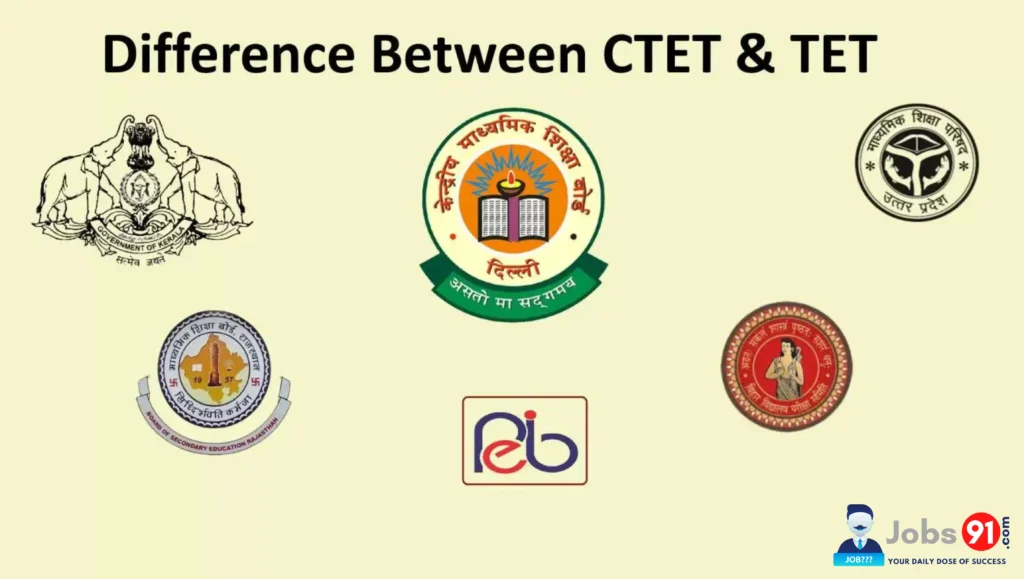If you’re aiming for a teaching career in India, understanding the differences between the Central Teacher Eligibility Test (CTET) and various State Teacher Eligibility Tests (TETs) is crucial. Both exams open the door to government teaching jobs, but they vary in scope, organizing bodies, and future opportunities.

Understanding CTET and TET
CTET (Central Teacher Eligibility Test):
CTET is a national-level examination conducted to certify candidates for teaching roles in central government schools such as Kendriya Vidyalayas and Navodaya Vidyalayas.
TET (Teacher Eligibility Test):
TETs are state-level examinations organized by individual state education boards. Qualifying a TET makes candidates eligible to teach in schools managed by the respective state government.
Key Differences Between CTET and TET
| Aspect | CTET | State TET |
|---|---|---|
| Conducting Body | CBSE (Central Board of Secondary Education) | Respective State Education Boards |
| Scope | Nationwide (Central Government Schools) | State-specific (State Government Schools) |
| Frequency | Conducted twice a year | Frequency varies by state |
| Eligibility | Minimum 50% in Senior Secondary + D.El.Ed/B.Ed. | Varies slightly by state |
| Age Limit | No upper age limit | Depends on state regulations |
| Medium of Exam | Available in multiple languages | Mostly conducted in the regional language |
| Certificate Validity | Lifetime | Lifetime (following national guidelines) |
| Application Fee | INR 1,000 for General/OBC (for one paper) | Generally lower and varies by state |
Career Opportunities
After Qualifying CTET:
- Eligible to teach in central government schools across India.
- Often preferred by reputed private schools.
- Can apply for teaching roles in Union Territories as well.
After Qualifying State TET:
- Eligible to teach in state government schools within the respective state.
- State-specific private schools may also recognize TET certification.
Which One Should You Choose?
Choose CTET if:
- You want to work in central government schools.
- You are willing to relocate anywhere in the country.
- You seek wider career prospects with national reach.
Choose State TET if:
- You prefer to stay and work within your home state.
- You are more comfortable with the state syllabus and language.
- You are focused on opportunities specific to your state.
Conclusion
Both CTET and State TETs serve as crucial stepping stones for a rewarding teaching career. Your decision should align with your personal goals, preferred work location, and career aspirations. Understanding the distinctions between the two can help you chart a clear and focused path toward your future as an educator.

